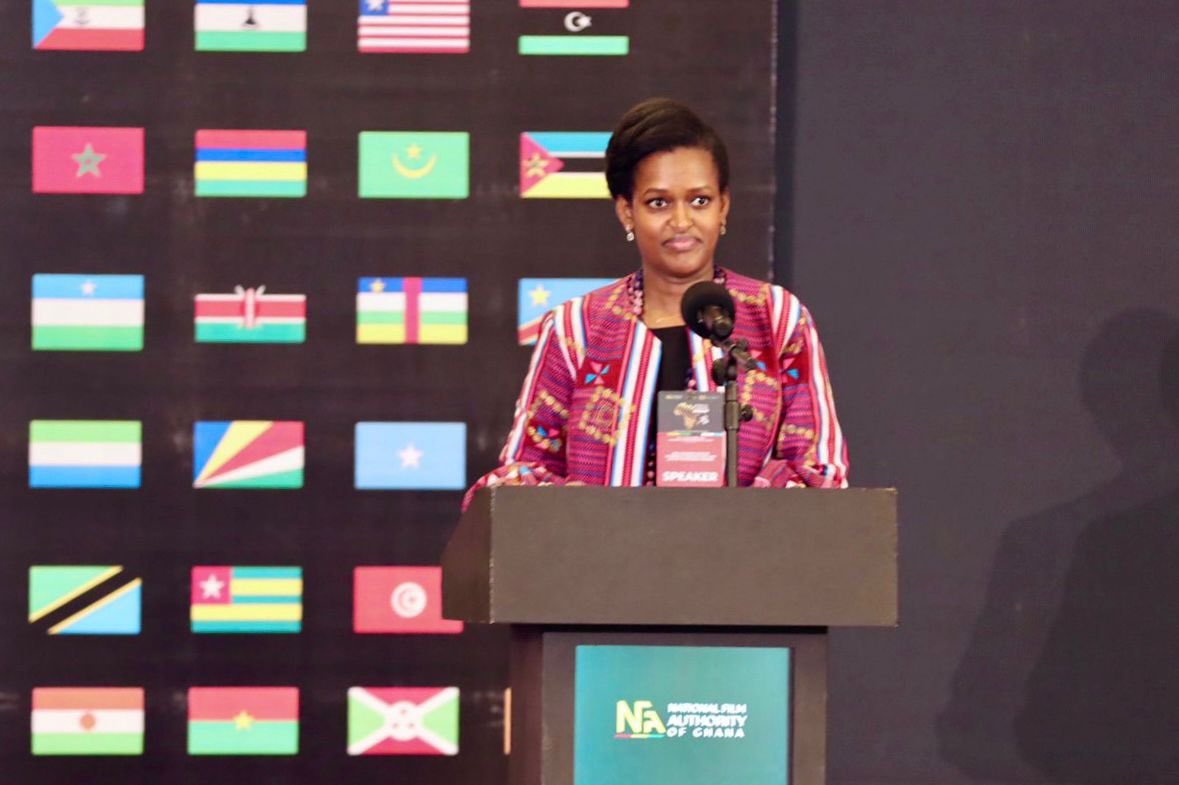In a compelling speech at the opening ceremony of the 2nd edition of the Africa Cinema Summit, Rwanda’s Minister of State for Youth and Arts, Sandrine Umutoni, urged global cinema stakeholders to support policies that unlock the immense economic potential of Africa’s creative industries.
The summit, held in Accra, brought together top leaders in film and media to discuss the unique challenges and vast opportunities in Africa’s burgeoning film sector.
During her remarks, Minister Umutoni emphasized the importance of innovating policies to foster the growth of creative industries, highlighting their proven capacity to contribute to education, job creation, tourism, and the shaping of national identities. “We need to continue innovating policies that support the immense economic potential of the creative industries, and its proven ability to contribute to education and skills development, dignified job creation, increased tourism, and the shaping of our national identities,” she stated.
The Minister also took a moment to celebrate the emerging young digital creators across Africa who are experimenting with new art forms and pushing the boundaries of storytelling in the film industry.

She acknowledged the rise of new talents using digital platforms and independent filmmaking, which she noted is not only building new audiences but also positioning Africa as a key player in global media and entertainment.
Collaboration and Co-Production Treaties Vital for Growth
Minister Umutoni called for greater collaboration and co-production treaties between African nations, describing them as essential tools for overcoming logistical barriers and producing films that are “truly pan-African in scope and spirit.” She urged the summit participants to champion the creation of such treaties, as they would enable the pooling of resources, talents, and expertise across borders.
“At the heart of this vision is collaboration. We must deepen our ties across borders, forming partnerships that enable us to share resources, talent, skills, and expertise,” she emphasized, adding that “Co-production treaties between African nations are not a luxury; they are a necessity.”
Addressing Funding Challenges and Supporting Local Talent
The Minister also addressed one of the most pressing issues faced by African filmmakers—access to funding. She noted that many filmmakers have been caught in a cycle of scarcity and are forced to navigate complex and opaque funding processes that do not always favor young, local talent. Minister Umutoni called for the establishment of accessible, transparent, and sustainable film funds that support African filmmakers at every stage of their careers.
“Greater collaboration among policy makers, the private and banking sectors, along with our international partners, will allow the establishment of film funds that are accessible, transparent, and designed to support African filmmakers at every stage of their careers,” she remarked.
Shaping the Future of African Cinema
In her closing remarks, Minister Umutoni urged all stakeholders to commit to working together to build a film industry that reflects the diversity and vibrancy of the African continent. “Let us commit to working together, to supporting one another, and to building a film industry that is as vast and diverse as the continent we call home,” she concluded.
The 2nd edition of the Africa Cinema Summit marks a significant step toward elevating the African film industry, providing a platform for leaders to discuss strategies that will foster growth and create more opportunities for local talent. With Rwanda’s ongoing support for creative industries and cross-border collaborations, the summit is poised to drive the African film industry toward a brighter future.

